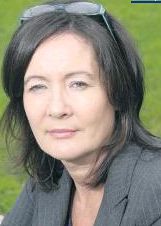 Douglas Husak, a Distinguished Professor of Philosophy at Rutgers University in the US, combines hard fact and rigorous moral reasoning in his cogent analysis of the drug law debate in his excellent book Legalize This! The case for decriminalising drugs. In this two part series (from Background Briefings section of website), I summarise his arguments to help the reader decide how they feel about the central question of the justice of drug laws. While Husak argues about the situation in the US, much of what is said is relevant to the UK and to many other countries.
Douglas Husak, a Distinguished Professor of Philosophy at Rutgers University in the US, combines hard fact and rigorous moral reasoning in his cogent analysis of the drug law debate in his excellent book Legalize This! The case for decriminalising drugs. In this two part series (from Background Briefings section of website), I summarise his arguments to help the reader decide how they feel about the central question of the justice of drug laws. While Husak argues about the situation in the US, much of what is said is relevant to the UK and to many other countries.
Husak points out that we need to ask the right question when looking at drug policy. He emphasises that the onus has always been on those who want to change drug laws to justify why there should be changes. In fact, the onus should be on those who support current policy to justify their position. This rarely happens.









